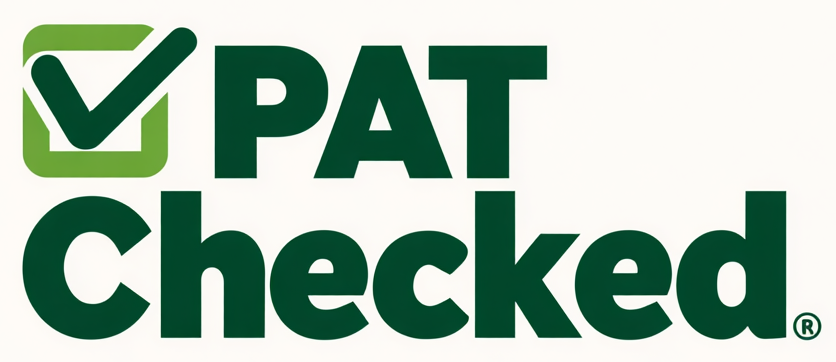Portable Appliance Testing (PAT) is an important part of keeping electrical equipment safe in workplaces, schools, rental properties, and other environments. If you’re responsible for appliances, you might wonder: Can I do PAT testing myself, or should I hire a professional?
In this post, we’ll explore the pros and cons of DIY PAT testing versus using a professional service so you can make an informed decision.
What is PAT Testing?
PAT testing involves checking electrical appliances to ensure they are safe to use. It typically includes:
- Visual inspections – Looking for obvious damage such as frayed cables, cracked plugs, or scorch marks.
- Electrical testing – Using specialist equipment to detect hidden faults like poor insulation, incorrect wiring, or faulty earthing.
PAT testing helps prevent accidents, maintain compliance with UK regulations, and provides records for insurance purposes.
DIY PAT Testing – Pros and Cons
Pros:
- Cost savings – You don’t pay for a professional service.
- Convenience – You can test appliances on your own schedule.
- Control – You know exactly which equipment is being tested.
Cons:
- Requires training – Correct PAT testing needs knowledge of electrical safety and testing equipment. Without proper training, you may miss faults.
- Equipment costs – PAT testers are expensive and require calibration.
- Legal risk – If someone is injured and you cannot prove competence or correct testing, you may face liability issues.
- Time-consuming – Testing all appliances thoroughly takes significant time.
Hiring a Professional – Pros and Cons
Pros:
- Expertise – Qualified engineers know exactly how to test appliances safely and accurately.
- Compliance – Professionals provide detailed reports and labels that meet UK health and safety requirements.
- Efficiency – Professionals can test many appliances quickly, reducing disruption.
- Peace of mind – You have confidence that testing is thorough and reliable.
Cons:
- Cost – Professional PAT testing services have a fee, though this is often small compared to potential risks.
- Scheduling – You may need to coordinate appointments around your business or tenants.
Legal Considerations
UK law requires that electrical equipment is maintained in a safe condition:
- Health and Safety at Work Act 1974
- Electricity at Work Regulations 1989
- Landlord and Tenant Act 1985 (for rental properties)
While PAT testing is not legally mandatory by name, failing to properly inspect and maintain appliances can result in legal liability. Hiring a professional ensures compliance and provides documented proof of testing.
Which Option is Better?
While DIY PAT testing is possible for small setups if you have the right training and equipment, for most workplaces, schools, and rental properties, hiring a professional is the safer, more reliable choice.
Reasons to choose a professional:
- Protects staff, tenants, and visitors from risk
- Provides compliance documentation for inspections and insurance
- Saves time and reduces the chance of errors
- Ensures testing is thorough, even for high-risk equipment
DIY testing may work for minor, low-risk environments, but for larger offices, educational institutions, or rental properties, professional testing provides peace of mind and legal security.
Final Thoughts
Choosing between DIY PAT testing and a professional service comes down to risk, expertise, and convenience. While doing it yourself might save money upfront, hiring a qualified PAT testing provider ensures that your appliances are safe, compliant, and properly documented — protecting people, property, and your business.
If safety and compliance are important to you (and they should be), professional PAT testing is the smarter, safer choice.
